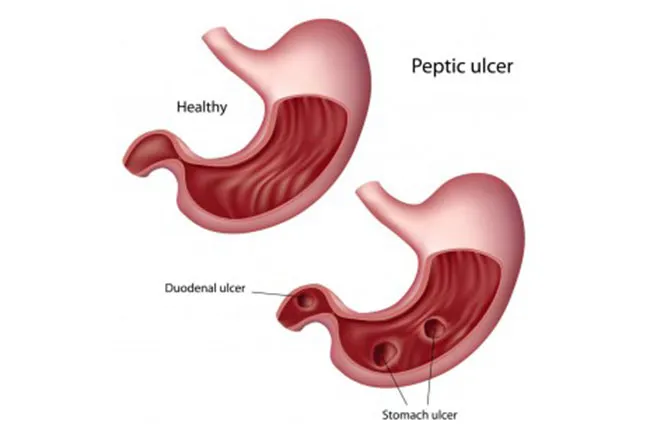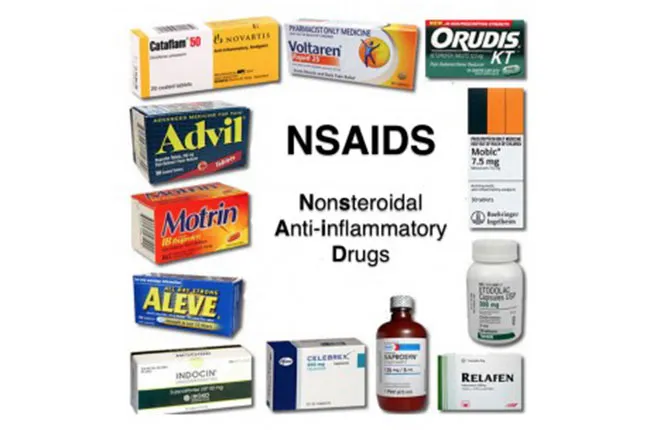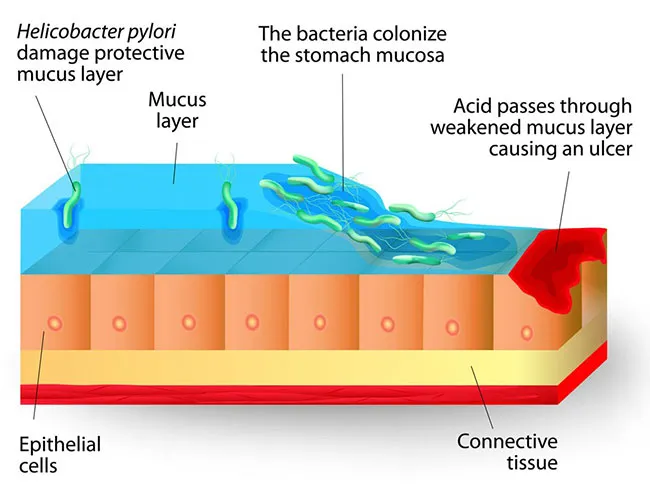


We now know that peptic ulcers in children are caused by a particular bacterial infection in the stomach and upper intestine and by certain medications like nonsteroidal anti-inflammatory drugs (NSAIDs). However, for almost 100 years, doctors thought that mental stress and spicy foods caused most ulcers.
A peptic ulcer is a sore or erosion in the stomach lining or the upper part of the small intestine (duodenum) due to a breakdown of the stomach’s protective lining or excessive amounts of stomach acid. Although peptic ulcers are more common in adults, children of any age can develop ulcers. Children whose parents smoke or whose parents have peptic ulcers are more likely to develop ulcers. Types of ulcers include:

The two main causes of peptic ulcers are infection with Helicobacter pylori (H. pylori) bacteria and the use of nonsteroidal anti-inflammatory drugs (NSAIDs), such as aspirin and ibuprofen.
H. pylori is a bacterial infection which can be present with no symptoms for a long period of time, but can lead to digestive illness if left untreated. It is typically contracted through food, water, or contact with an infected person. H. pylori can weaken the stomach’s protective lining, which can allow acid, as well as the bacteria, to irritate the stomach and create an ulcer.
Nonsteroidal anti-inflammatory drugs, >such as aspirin and ibuprofen, can also be a contributor to peptic ulcers. While most children who take NSAIDs do not develop ulcers, some can develop bleeding or gastrointestinal problems with only moderate usage. Acetaminophen can be used as an alternative for pain control, as it will not cause ulcers because it is not a NSAID.
In extremely rare cases in adults, peptic ulcers can be caused by Zollinger-Ellison syndrome, a cancer which causes excess stomach acid production.

Determining the cause of a peptic ulcer is as important as confirming the diagnosis. If an ulcer is suspected, your doctor may recommend diagnostic testing, including:
| H2 Blockers (Acid Reducers) Acid Suppressors for Gastroesophageal Reflux Disease (GERD) | |
|---|---|
| Generic Name | Brand Name |
| ranitidine | Zantac |
| cimetidine | Tagamet |
| famotidine | Pepcid |
| nizatidine | Axid |
| Proton-Pump Inhibitors Acid Suppressors for Gastroesophageal Reflux Disease (GERD) | |
|---|---|
| Generic Name | Brand Name |
| pantoprazole | Protonix |
| esomeprazole | Nexium |
| omeprazole omeprazole/ sodium bicarbonate, | Prilosec, Zegerid, Prilosec OTC, Zegerid OTC |
| rabeprazole | Aciphex |
Treatment for a peptic ulcer will depend on the cause of the ulcer. Regardless of the source of your child’s ulcer, your doctor will probably recommend some type of acid suppressor or neutralizer to reduce pain. Common treatments for ulcers include:
If your child is diagnosed with a peptic ulcer caused by H. pylori, it is important to administer the entire course of antibiotics. Dietary restrictions are not usually required unless specific foods are bothersome. Keeping a regular meal schedule will ensure that your child’s stomach doesn’t get empty, which can cause discomfort. Your doctor may also recommend:
If you would like more information about gastrointestinal (GI) digestive disorders and nutrition in children, please contact Dr. Mona Dave’sFrisco Office.